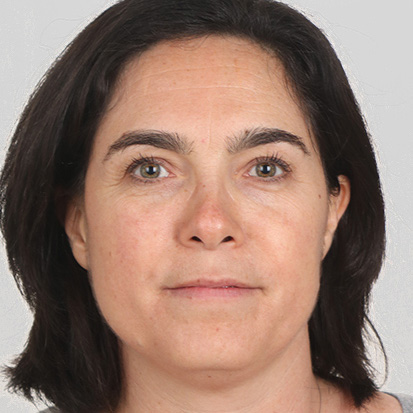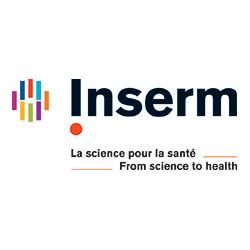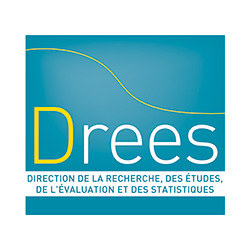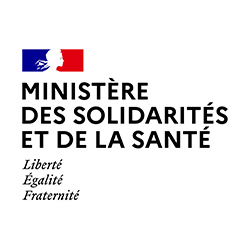
French National Perinatal Surveys
For nearly 30 years, National Perinatal Surveys (Enquête Nationale Périnatale or ENP) have been conducted regularly in France, at the behest of the public services. These surveys yield data on the health of mothers and their newborns, medical practices during pregnancy and delivery, and the demographic and social characteristics of pregnant women and their families. They provide a picture of how perinatal care is evolving in France. The surveys also provide public health officials, clinicians, and women with information on what is needed and on the impact of decisions taken and recommendations made.
History of the National Perinatal Surveys
The need for regular surveys arose in the early 1990s because of a lack of a regular source of data. In 1988-89, an Inserm team tested the feasibility of collecting minimal information from medical files on all births occurring over one or two weeks. This proved feasible provided women who had just given birth were interviewed, so that pregnancy follow-up and the women’s living conditions could be recorded. In addition, a sample of births over a single week in the year, in the spring and autumn, was enough to analyze the annual situation. Three surveys following this scheme were conducted in 1995, 1998 and 2003.
Data collection was extended in the following surveys in 2010 and 2016 to meet the information requirements of the public services, clinicians, and women and their families.
The following major changes have been observed since 1995:
- Steady increase in the rate of prematurity (birth before 37 weeks) (twins not included) (6.0% in 2016),
- Stabilization of the rate of cesarean section at 20%, after a regular increase,
- Observance of good clinical practice guidelines; for example, a drop in the rate of episiotomy (20% of vaginal deliveries in 2016),
- Concentration of deliveries in large maternity wards,
- Development of prenatal follow-up by midwives in maternity wards or in private practice,
- Stabilization of the proportion of women who smoke during pregnancy (17% in 2016),
- Contrasting changes in maternal characteristics: increase in educational level and in the percentage of women with a professional activity, but also increases in age (21% of the women were over 35 in 2016) and in the percentage of overweight or obese women (32% in 2016).
For more information, see Documents page.
Aims
- Produce indicators of health, medical practices, and risk factors that are not known from other sources, to monitor the evolution of perinatal health in France, and to compare the French situation with that in other countries, notably European;
- Provide information on specific questions to guide actions, assess the results of certain public measures, and determine the impact of guidelines issued by agencies or associations of healthcare professionals;
- Know women’s expectations and their reactions to the quality of care and support during pregnancy and delivery.
2021 National Perinatal Survey in practice
The 2021 National Perinatal Survey will proceed as follows:
Survey sites: all public and private maternity wards, and birthing centers.
An interview (face to face or by telephone) will be conducted with a reference person at the maternity ward, to characterize the birth environment.
Sample: all births during one week in March 2021
Two-part data collection in the maternity ward: a midwife will conduct an interview of about 15 minutes with the women during their stay in the maternity ward and collect data from the medical files. The interview will include questions on living conditions, prenatal follow-up, and preventive behavior; the data collected from the medical files will relate to pregnancy complications, childbirth, and the health of the mother and newborn.
To have a more global vision of perinatal health, the 2021 National Perinatal Survey will include two new features:
A follow-up at two months: the women will be recontacted online or by telephone so as to answer a new approximately 15-minute questionnaire. This questionnaire will cover notably the health of mother and child since their return home, the feeding of the child, the mother’s reactions to care received at delivery, and environmental exposure during pregnancy.
Medication intake from the national health data system (SNDS): data on health insurance for the mother and child will be used to provide more information on medical care during pregnancy and delivery and on maternal illnesses treated before pregnancy.
The 2021 National Perinatal Survey team
 Camille Le Ray – scientific manager
Camille Le Ray – scientific manager
 Nathalie Lelong – co-manager
Nathalie Lelong – co-manager
 Hélène Cinelli – national coordinator
Hélène Cinelli – national coordinator
 Béatrice Blondel – scientific advisor
Béatrice Blondel – scientific advisor

From October 2020 to July 2021, the team was reinforced by the regional coordinators : Candie Grangé, Nelly Beuchee-Ravenel, Anne Leroux, Marion Mottier, Mélanie Carpentier.
Their expertise was invaluable in carrying out the project.
All team members work in EPOPé (perinatal epidemiology, obstetrics, and pediatric research team) at CRESS (Center of Research in Epidemiology and Statistics). The team works under the aegis of Inserm (French National Institute of Health and Medical Research) and the University of Paris.
Our partners
Four main partners assist the Inserm team in setting up and conducting the National Perinatal Survey. They have been involved from the start of the project and secure its funding:
- DREES (directorate of research, studies, evaluation, and statistics) at the Ministry of Health, health observatory and health insurance department
- DGS (health directorate), sub-directorate of health and prevention of chronic diseases
- DGOS (general directorate of healthcare services), sub-directorate of the regulation of care provision
- Public Health France, department of noncommunicable diseases and trauma
Project management
The Steering Committee comprises the Inserm-University of Paris team responsible for the National Perinatal Survey and representatives of four partner institutions. It meets approximately every month to oversee the different stages of the project and its fine tuning up to the publication of results.
The Policy Committee comprises the members of the Steering Committee and representatives of regional health agencies, hospital federations, perinatal health networks, regional health observatories, family and child benefit agencies, maternal and infant protection services, associations of healthcare professionals (anesthetists, gynecologist-obstetricians, pediatricians, midwives), and user representatives. It meets at regular intervals to help define data collection needs and to discuss the interpretation of the results obtained.






